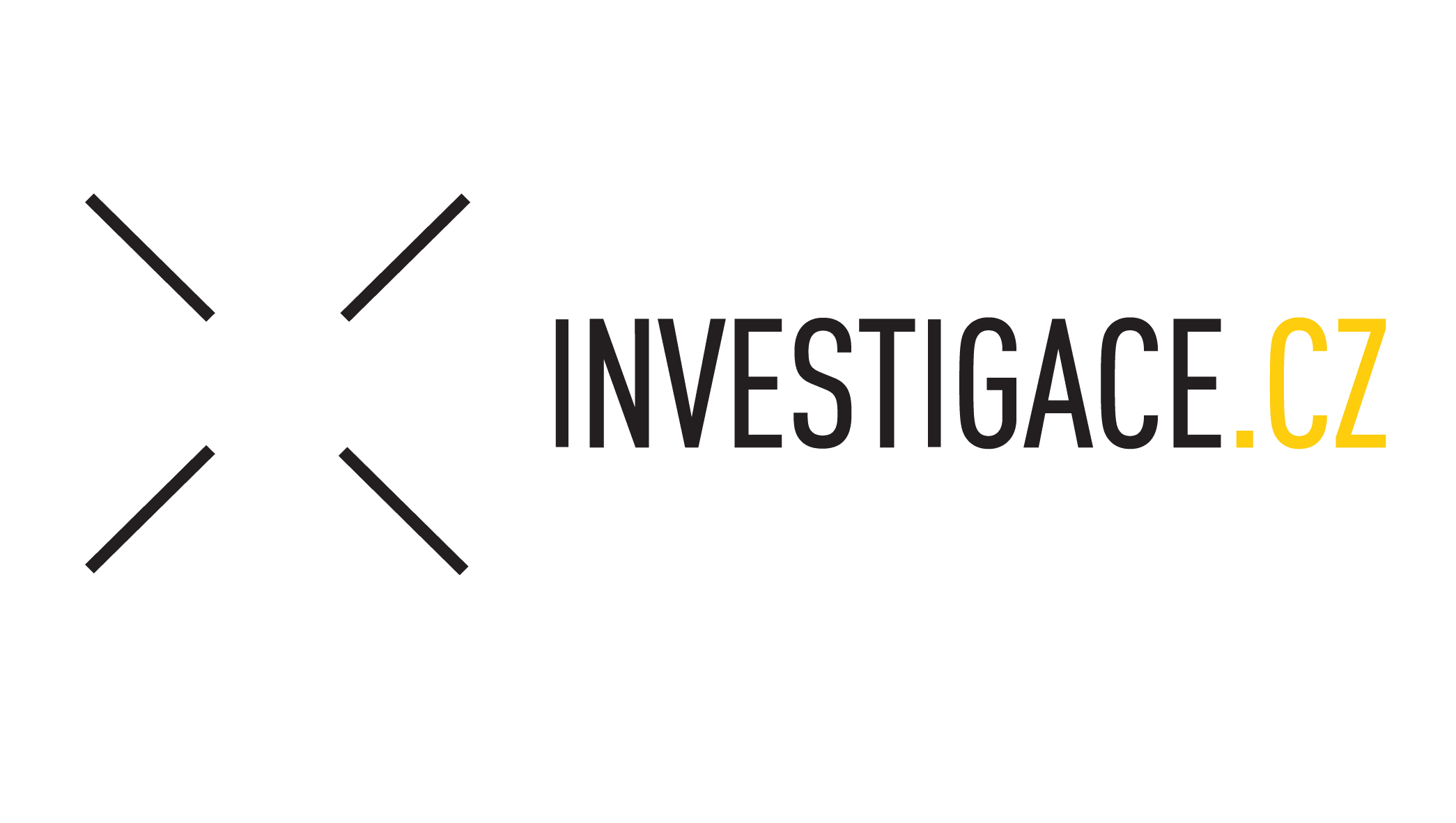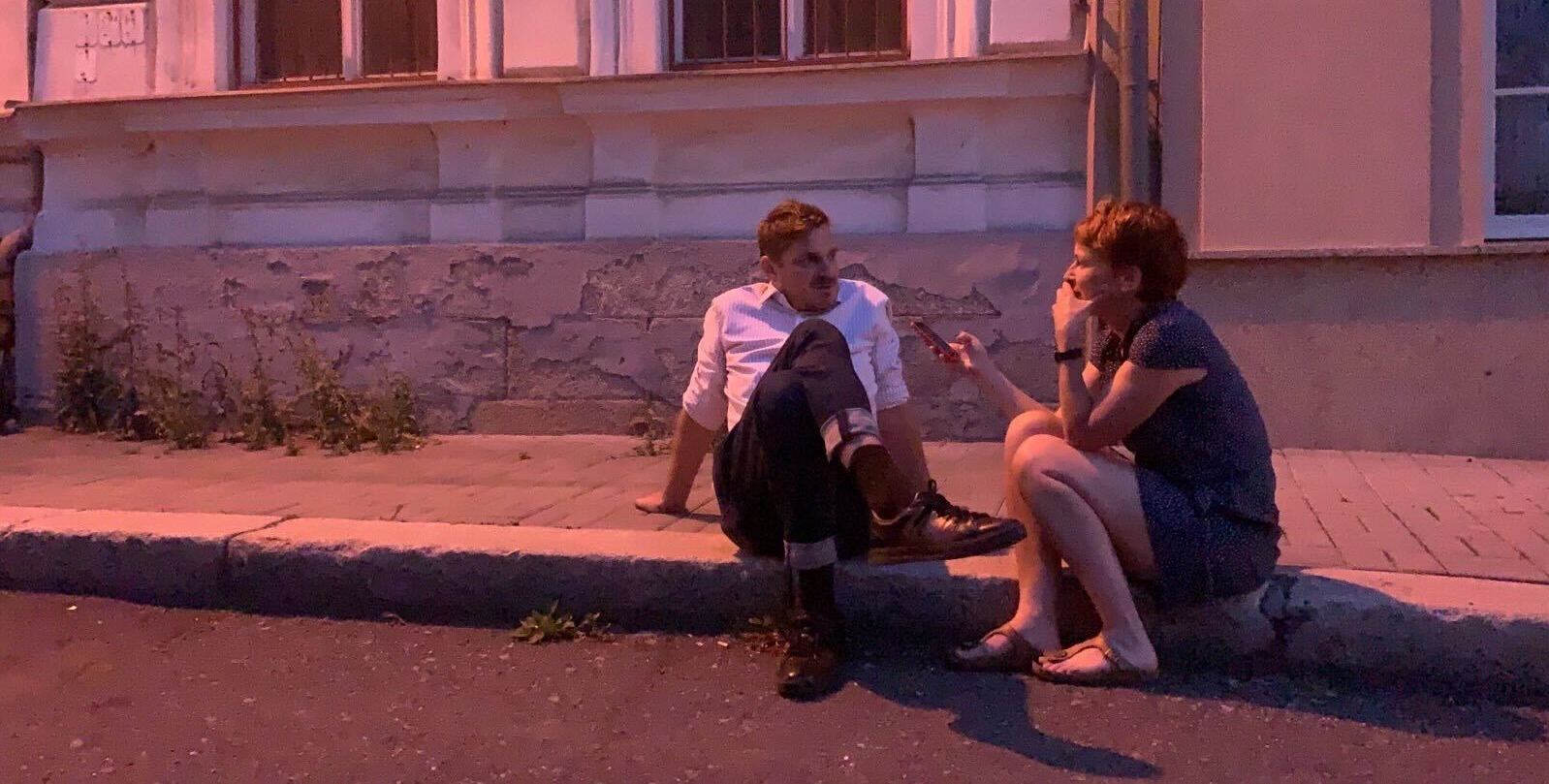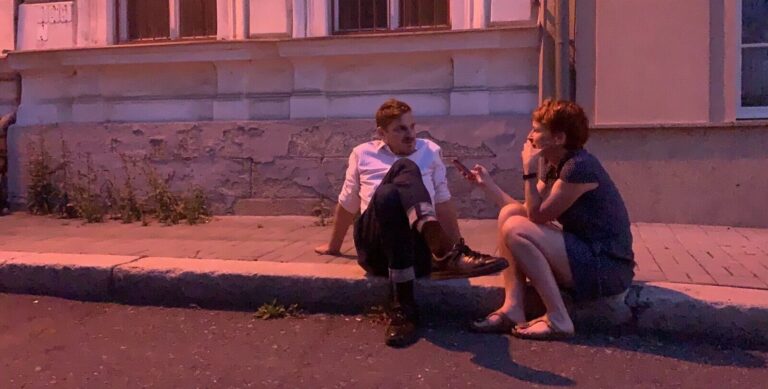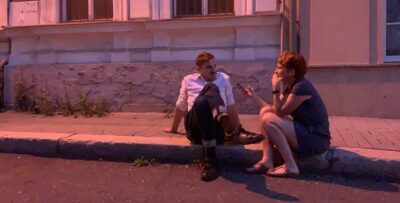by Pavla Holcová, Zuzana Šotová / Investigace.cz
The European premiere of “The Killing of a Journalist” took place during the International Film Festival in Karlovy Vary on the 5th of July. The document tell the story of a murdered Slovak journalist Ján Kuciak and his fiancée Martina, which lead to uncovering of just how rotten the local system was and a wave of public unrest which inevitably changed the whole country. After the premiere, Pavla Holcova, one of the main protagonists in the film, talked to Matt Sarnecki, the director and reminisced about events leading up to creation of the document and the process itself.
This article was originally published in Czech on investiagace.cz.
How much did you know about Slovakia before you started making the film?
This is quite embarrassing, but not much at all. I’ve been to Slovakia only once – before we started filming – in 2006 and that was about it. I certainly didn’t know anything about the political situation. But I think I was quite a fast learner and got the ropes fairly quickly. Once we began filming in Slovakia and my team – especially Julia Babuščak and Eva Kubaniova – and of course you, explained the situation and the atmosphere, I got the ropes quickly. The team was also absolutely necessary because of the language barrier. Thanks to them and the fact that I spend some time in Slovakia, I think I was able to capture the events authentically, truthfully.
You arrived in Slovakia about a week after the murder…
Not even a week. There’s one thing people always ask me – how did I get to working on the document. The main reason is because for the past ten years I’ve been working for The Organized Crime and Corruption Reporting Project (OCCRP, one of the producers of the film) as a producer and creator of investigative documents. And the fact that I lived in Bucharest. A couple of years ago, I worked on a document about the assassination of Ukrainian journalist Pavel Shermet in 2015, called “Killing Pavel”. A part of my job there was to analyse CCTV footage from street cameras, to try to find any suspicious people, to try to find the killer. That’s why they asked me to come to Slovakia, to a small town Velka Maca, just a few days after they discovered Ján and Martina’s bodies. We hoped to do a similar investigation to the one in Ukraine.
Is it important to act fast?
Very important. Especially if you need to get the CCTV footage from the area around the crime scene. It is necessary to be as fast as possible. Unfortunately, this didn’t happen in Slovakia, the police didn’t want to share the footage with us…
You came to the Slovak police and asked them for the footage?
Yes.
Isn’t that a bit naive? I mean, you had to have a certain idea that the Slovak police doesn’t really work the way it’s supposed to, to put it mildly.
Honestly, we didn’t really expect to get it. First of all, Slovakia is not Ukraine – in Kyiv, we got most of the CCTV footage by just going door to door and asking individuals or businesses to give it to us. Which means private cameras. Most of the cameras in Velka Maca were publicly owned and the communication with the local mayor proved difficult. They already gave everything to the police. It would have been almost unprecedented, if the police gave us the footage.
Did you then decide that the film is not happening?
It wasn’t about the film at that time. We wanted to help solve the crime. Honestly, it was the last thing I wanted to do, to make another documentary about a murdered journalist. At that time I met Eva Kubaniova, Ján’s friend, and we formed a friendship.
Yes, I know, Eva worked for investigace.cz [media which Pavla founded and directs] before and then took a year off and came back about a week before the murder.
You see, I didn’t know that. Anyway, I started to follow the case. Not daily, I wasn’t interested in it because I wanted to make a document. I wanted to know how the investigation is going to progress and if it really was Italian mafia who killed them – if it was really a ‘Ndrangheta ordered hit in the middle of Europe.
When did you decide to make the document after all?
I know it crystalized at the editorial meeting of OCCRP in Lisbon, I think it was either 2019 or 2020, the timeline is kind of hazy. I do remember you telling me you got an exclusive access to the police files related to the investigation and the things you found in it so far.
But that was before I even knew how many things we would find in there…
Yes, you didn’t know that the footage from the confession of the killer would be there or the interrogation tapes. We had no idea what we were going to find. But I remember telling myself ‘wow, we could really make something great with this material’.
We were on a train from Bratislava to Prague and I was explaining the whole story…
Exactly, I remember I basically told you to relay the whole modern history of Slovakia. That was the first time I began to understand the whole situation, became acquainted with the main characters. We talked about Slovakian oligarchs and Marian Kočner. And we didn’t even know half of what we know now, how the whole network of influence and connections worked. I thought that Slovakia was a sort of model country before, not at all problematic like for example Poland or Hungary. Well, this bubble burst very quickly. I realize that many Slovaks knew that the situation in which they lived wasn’t ideal, but I think that until the murder and the leaked information and arrests of powerful people, did they realize just how bad the situation really was. A part of the government and most of the institutions were rotten to the core.
You read the police file, you understood the corrupt and mafia system of “our people” – was there anything during the filming that still surprised you?
For me a big surprise was Marek Para, Kočner’s attorney. I never expected him to agree to being on tape, to be a part of the document. There was a lot of pressure on Marian Kočner already, he has been charged by then. When it was time to approach them, Julia Babuščak – researcher and producer – asked me, what she should tell them. I said, you have to tell the truth, that we’re filming a document about the murder and the circumstances surrounding it. So we met Para – the fact that he agreed to even meeting was a surprise – and I explained that there are going to be the attorneys of both families (the Kuciak family and Mrs. Kusnirova, Ján’s parents and Martina’s mother) and that the film will be much better if he agrees to speak for his client. I think I sold it to him really well. I basically told him he has to do a good job representing his client, to really show both sides, to keep the balance. He turned out to be one of the nicest people we worked with, the whole team came to like him. Which may have been just a façade, of course. But he did do a good job representing his client.
Did you try to talk to Kočner?
Yes, Marek Para told us that the best person to defend Marian Kočner is Marian Kočner. He even said that Kočner wanted to meet us and do the interview from prison. But the prison authority didn’t allow it. I think it was because of his other process (Kočner was also charged with fraud, which he was later found guilty of).
The document was already in the making when the first level criminal court passed the sentence – Marian Kočner and Alena Zsuzova (Kočner’s right hand) are not guilty. Were you surprised?
The whole process was quite long, dragged out. I honestly thought that it’ going to be “guilty”. At the beginning of the process it really seemed to go well, but then there were postponed and cancelled hearings and it began to seem that the judges thought they would have a guilty verdict but something was in the way. It seemed they couldn’t agree. And that’s when I started to feel this wasn’t going to end well, that it’s not going to be the verdict we wanted.
Did the work on the document affect you emotionally? For example, during filming of the interviews – and I don’t only mean the ones with the parents.
I am an extremely emotional person. During the years I do this job I have learned not to give my emotions that much space, because it may even be distracting for the respondents. But we are all just people. When we filmed the interview with the Kuciaks, the whole team was crying and there was nothing to be done. But I don’t feel it’s right for me, as the director, to break down on the job. During the filming process, I am very aware of what I want to achieve, to get, and what needs to be done, and I focus on that. It is extremely important to do the job right, not to mess it up. You have to focus. There is no one narrator for the whole film, so the audience has to understand the story from different interviews of different people, which means nothing can disturb them. On the other hand, of course it affected me, I was nervous, and I felt deeply for those people who have lived through such horrible events.
Do you think you could now say that you know Ján and Martina? That thanks to the document you got to see who they were?
I don’t know. I have never met them. I haven’t read their diaries, I only read a couple of Ján’s articles. I think it would be arrogant of me to say I know them. What I can say is that I know their families and loved ones and the relationships they had. I have the utmost respect for their families, the Kuciaks and Zlata Kušnírová. The filming was a long and difficult process, we analysed a murder of two young people, who, at the beginning, were complete strangers. We did have access to their phones, photos, videos, though.
What did you think about the standing ovation the film got after the European premiere in Karlovy Vary?
It was awesome, it was the best part. I wasn’t sure how the audience would react, because before (the world premiere was in May in Toronto) they just went quiet. They didn’t clap. Because it is a very strong topic, very heavy. But Karlovy Vary are in the Czech Republic, which is right next doors to Slovakia, so the people already knew about the case. It’s close. The audience didn’t just applaud the film, they applauded the families of Ján and Martina. I can’t even imagine what must have been going through their heads.
I asked them. They were moved, very emotional.
I have never seen anything like it. The audience just turned towards the families, they didn’t clap towards the stage. Just for this moment this whole journey makes sense.
Translated by Zuzana Šotová / Investigace.cz
 Support independent investigative journalism in Czech Republic!
Support independent investigative journalism in Czech Republic!
You can donate here.







